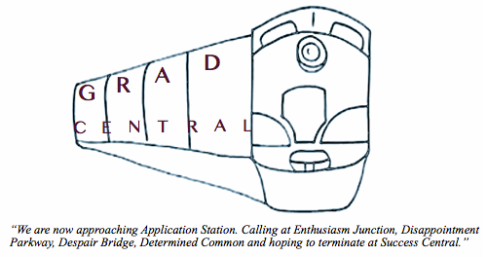Insincerity: The Language of Cover Letters
by Write Edit Print.
It all starts in a flurry of excitement. No jobs you say? What rubbish! Look at all these glittering jewels just waiting for me to snap them up. Editing position, fashion buyer, PA to the stars – it’s all here. According to the figures, unemployment is now down from a record high in 2011 to just over 2.5 million and in June this year it was announced that vacancies were at their highest since 2008. Well that sounds pretty promising. Oh wait. The estimated number of job vacancies is 529,000. I’m no mathematician but I can see that is a scary statistic, especially following the realisation that you are distinctly under qualified for at least ninety per cent of these jobs. At this point, you start to pull away from Enthusiasm Junction and head at some speed towards Disappointment Parkway, attempting not to derail completely as rejection e-mails come flying your way with the familiar words, ‘due to the high level of applications, we regret that we will not be able to take you on [read: that we have failed to read your application]. Their ‘regret’ seems somewhat insincere when it’s almost certain they have copy and pasted your name into the first line.
Still, insincerity is the language of cover letters so it’s useful to be given a healthy dose of it now and again. Never in your life will you spend so much time trying to turn the most ordinary of life proceedings into examples of unique and remarkable personal attributes; a process better known as ‘bullshitting’. Your childhood obsession with a wooden abacus wasn’t just a fairly standard toddler’s attraction to brightly coloured moveable objects. No! It demonstrates rare and unparalleled mathematical skill. At junior school, your regular position as third sheep in the nativity play shows that you work well as part of a team. You were always nominated to tidy the sand pit area, which you did admirably, and which confirms an acute attention to detail and a willingness to take responsibility. Take away the bullshit veneer and what you’re really saying is that you’re not completely mathematically inept or an nauseating show-off (like the girl who always played Mary) and you may have mild OCD.
After a few weeks at Application Station when your final destination, Success Central, looks as far as London to Vancouver by foot, it’s common to make a slight detour towards Despair Bridge. You may be here for several days while you’re oiled with reassuring words and inflated compliments. When you’re at your most desperate, friends have a tendency to display an excessive amount of confidence in you and gradually their reassurances just turn into outright lies. “You’ll have a job by the end of next week. They’re like buses, after three weeks of no-shows, five offerings will come along at once.” With figures estimating that, in top companies, up to one hundred and sixty graduates apply for one position, this is statistically unlikely. “They only turned you down because their quota meant they had to employ a male Jewish amputee. And its not your fault you’re not a male Jewish amputee.” Do not be fooled. These are lies. At least I hope they are otherwise, as a white, caucasian twenty three year old with all my limbs and features, my chances of getting employed within any quota are depressingly low.
With the expanding list of ‘skills’ and ‘experience’ needed to procure the most junior of roles, graduates are forced into the position of talking nonsense at an unparalleled rate. The cover letter becomes less of an exercise in expressing your genuine interest and enthusiasm for the job and more of an exercise in out-bullshitting your competitors. Its nonsensical to advertise a graduate job and demand that the applicant have three years experience in that sector. The clue is in the name: graduate job. The only thing we have three years experience in is vomiting, bad cooking and an inability to clean the bathroom (they may all be interrelated). So what they are essentially saying is, yes, we want a someone with a degree but screw you if you’ve spent the last three years at university because you should have spent them training to do this job. And yes, we want someone with a willingness to learn but it would be preferable if you already know it all.
Why not forget the bullshit and employ us desperate graduates for three genuine reasons? One: we’ll work hard because we can’t afford to lose this job. Two: we’ll be enthusiastic because if we know we have to do something nine to five what’s the point in being miserable about it? And three: we’ll be good at our jobs because, after three months at Application Station we’ve learnt how to be organised, determined to succeed, and how to cope in a complete crisis, believe us.
